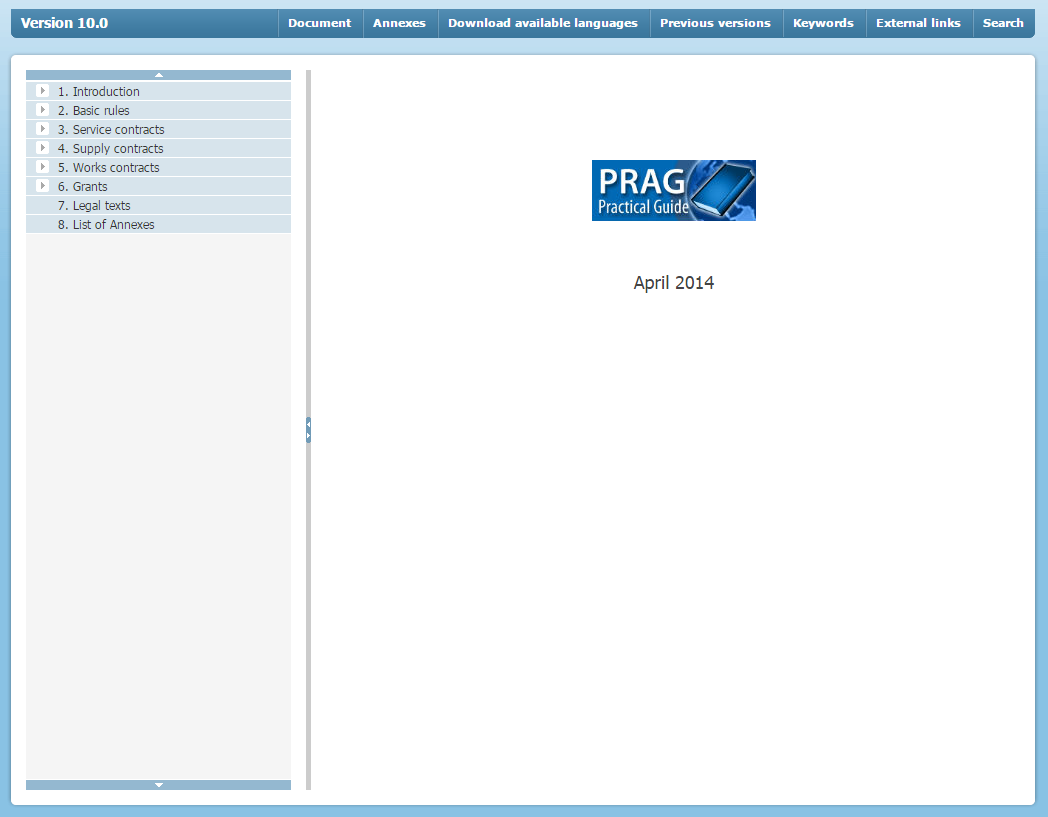Resources on the EU approach

Addressing Conflict Prevention, Peacebuilding and Security Issues Under External Cooperation Instruments: Guidance Note seeks to raise awareness among the responsible EEAS (including EU Delegations) and EC staff about the need to ensure that building peace, preventing conflict and strengthening international security are adequately included in EU external cooperation instruments. The document is structured around practical questions, including, ‘Are there specific policy documents or guidelines on conflict prevention, peacebuilding and security issues?’ and ‘Whom should I contact if I need support?’ (EEAS and EC, 2013).

Addressing Conflict Prevention, Peacebuilding and Security Issues Under External Cooperation Instruments: Guidance Note seeks to raise awareness among the responsible EEAS (including EU Delegations) and EC staff about the need to ensure that building peace, preventing conflict and strengthening international security are adequately included in EU external cooperation instruments. The document is structured around practical questions, including, ‘Are there specific policy documents or guidelines on conflict prevention, peacebuilding and security issues?’ and ‘Whom should I contact if I need support?’ (EEAS and EC, 2013).

The EU Approach to Resilience: Learning from Food Security Crises sets out key policy principles for action to help vulnerable communities in crisis-prone areas to build resilience to future shocks. Drawing on experiences in addressing recurrent food crises — mainly in the Horn of Africa and the Sahel — and with the aim of enhancing the effectiveness of EU responses, the communication recognises that strengthening resilience lies at the interface of humanitarian and development assistance. It proposes 10 steps to increase resilience, including focusing on more flexible funding and donor coordination. Although based on lessons drawn from food security crises, the approach is applicable to other types of vulnerability, notably disasters, climate change and conflict (EC, 2012).

EU Development Cooperation in Fragile States: Challenges and Opportunities analyses the strengths and weaknesses of current EU engagement in fragile states — particularly its support to conflict prevention and periods of transition within the broader international context. It examines the limitations of the instruments and methods implemented by the EU to address the problems of fragile states and identifies what could be done to improve them. The study concludes with seven recommendations (Directorate-General for External Policies, European Parliament, Brussels, 2013).

Guidance Note on the Use of Conflict Analysis in Support of EU External Action seeks to analyse how EEAS and the EC can better work to preserve peace, prevent conflict and strengthen international security using a comprehensive approach. Conflict analysis contributes to making an informed choice in articulating the EU comprehensive approach across a wide range of mechanisms and tools. The document is structured around practical questions such as, ‘What constitutes EU conflict analysis?’ and provides key ‘who, when and how’ information (EEAS and EC, no date).

Handbook on CSDP: The Common Security and Defence Policy of the European Union, 2nd edition supports the development of a common and shared European security culture. Designed for CSDP training purposes, it offers an overview of CFSP/CSDP, specifically its current status, structures and policies. This second edition of the handbook was necessitated by the evolution of CFSP/CSDP, especially after the Lisbon Treaty. An important addition is the relationship between international security and climate change (Jochen Rehrl and Hans-Bernhard Weisserth, eds., Directorate for Security Policy of the Federal Ministry of Defence and Sports of the Republic of Austria, Vienna, 2012).

Practical Guide to Contract Procedures for EU External Actions (PRAG) explains the contracting procedures that apply to all EU external aid contracts financed from the EU general budget and the EDF. For information on flexible procedures, see the negotiated procedure subsections for service, supply and works contracts (Subsections 3.2.4.1, 4.2.5.1 and 5.2.5.1, respectively).
An e-learning for PRAG is also available in the Learning Space
